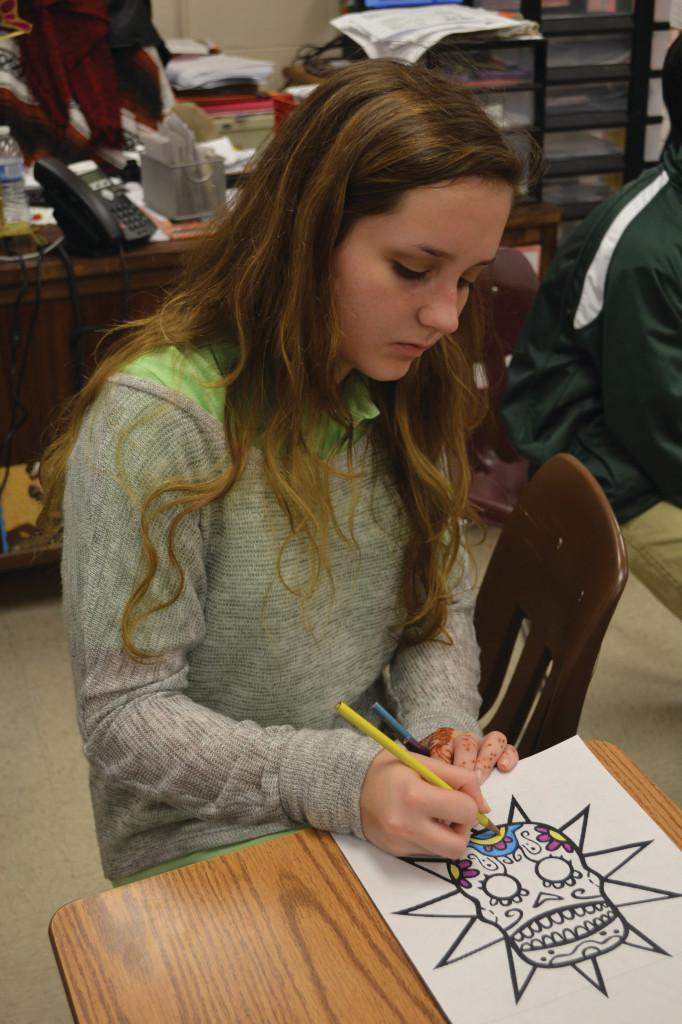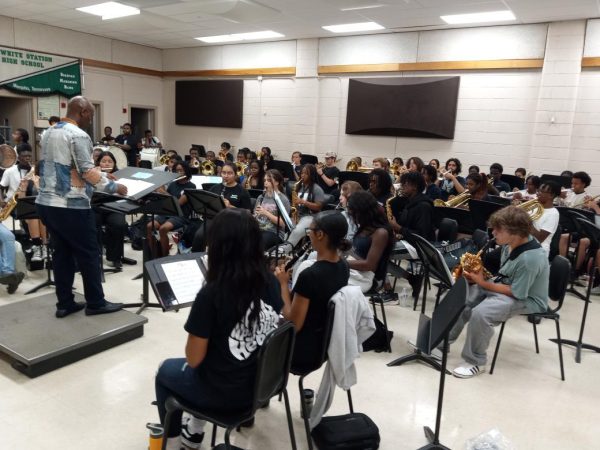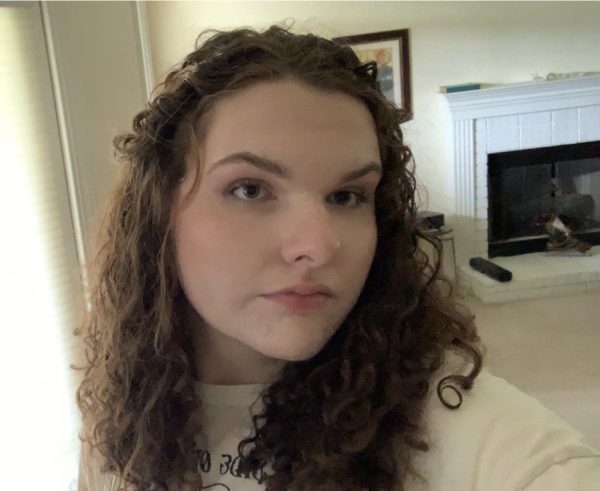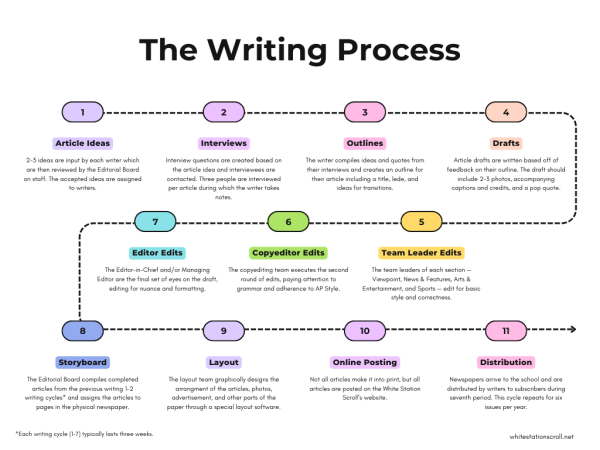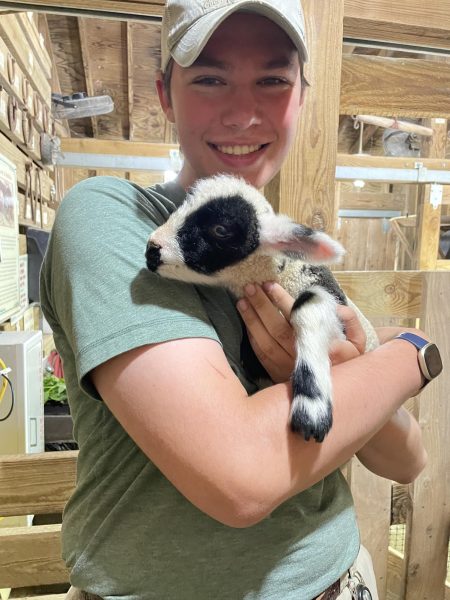Celebrating Hispanic heritage
Maddy Howell-Moroney (9) of the Spanish Club celebrates Dia de los Muertos.
The United States is known as the melting pot of the world for its unique combination of various backgrounds as a single American culture. During National Hispanic Heritage Month, Americans are reminded why a little Latin spice is so important to the mix.
National Hispanic Heritage Month began in 1968 as Hispanic Heritage Week. In 1988, President Ronald Reagan extended the national holiday to span from September 15 to October 15. Today, over 50 million Hispanics live in the United States and contribute their vibrant cultures to the American identity.
“My heritage is really important to me. My mom always taught me about Mexico growing up,” said senior Ricardo Sotelo, whose parents moved to Chicago before his birth in search of better work.
The United States Census Bureau defines the term Hispanic as any person of Spanish, Mexican, Puerto Rican or Cuban descent, or anyone whose origins trace back to Spanish-speaking countries in South and Central America.
Thousands of famous Hispanics, from Cesar Chavez to Jennifer Lopez, have made significant contributions in the United States through a variety of different fields, including politics, business and entertainment.
Ordinary Hispanic Americans also greatly influence American culture today. Spanish is the second most commonly spoken language in the United States, and Latin American cuisine is a favorite here.
However, Hispanics in America continue to face stereotypes and prejudice.
“People assume that you don’t have your papers. They assume we’re all Mexican. But some people are from Honduras, El Salvador,” said sophomore Luis Chinchilla.
Although he is Mexican and Guatemalan ethnically, Chinchilla was born in Georgia after his family had lived in America for ten years.
Senior Andres Perez, who moved from Mexico to America when he was four, has also experienced the ill-treatment that millions of Hispanic Americans endure.
“Whenever I go somewhere, people try to talk to me in Spanish,” he said. “They say, ‘Hey amigo,’ in a really bad accent. I just say, ‘I speak English.'”
Examples like these of prejudice in America made a large impact on Spanish teacher Angélica Shirley’s life in the United States.
“My decision to start teaching was born from my observation of a lack of desire to get to know other cultures,” she said. “[I wanted to] help the younger generations and inspire them to understand other people in the world.”
Issues like immigration and equal pay often lead to hostility, and many Hispanic Americans feel that they face problems unique to their heritage.
“There’s always a possibility that somebody’s going to come in and tell you, ‘We’re taking away your daddy today,'” said Chinchilla.
Yet many Hispanics are optimistic for the future.
“Now [Americans] are saying, ‘Oh, I really need to learn other languages and understand other cultures,'” said Mrs. Shirley.
Regardless of what country they come from, Hispanic Americans have permanently established their place in the melting pot of American culture. Hispanic Heritage Month is not just a celebration of cultures, but is also an opportunity for all to learn.
Your donation will support the student journalists of White Station High School. Your contribution will allow us to purchase equipment and cover our annual website hosting costs.



































